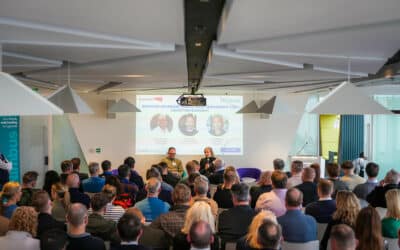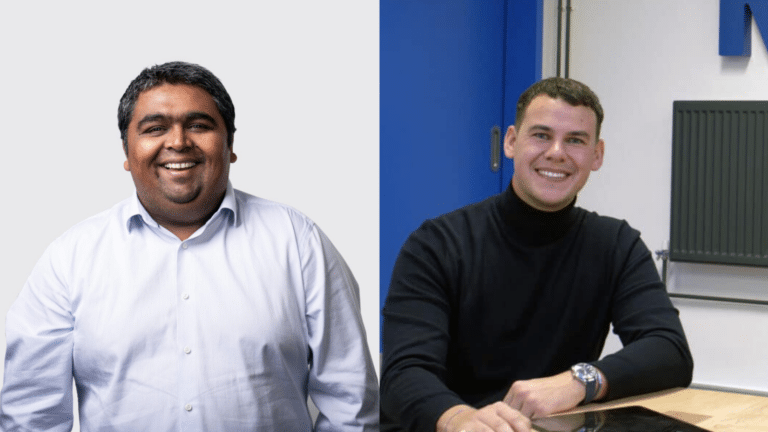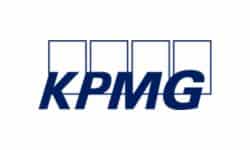Following Prolific North’s successful debut of its Growth to Gold event in February, we got together with KPMG and eight leading figures from across the North’s digital and marketing sectors, to dig a little deeper into what’s happening in the market and how Northern agencies and companies are facing up to the challenges and opportunities.
To help shape the framework of the conversation around the table with some hard facts, KPMG also pulled together with some original research looking at deal activity – nationally and regionally – to inform our attendees as they explored and shared their thoughts.
The content of that research was compiled specifically for the session but for readers who may be interested in seeing the raw data for themselves, they can contact Guy Pearce at KPMG who led the research at [email protected].
Briefly – and encouragingly for the companies operating in Prolific North’s patch – the data pointed to a pronounced increase in Northern agencies and companies either raising private equity or undertaking M&A activities.
KPMG identified over 1,100 deals across the ‘broader’ digital/marketing/tech sector which took place across the UK over the past decade and the percentage of Northern companies engaged in these transactions rose steadily and surely over the decade, from 9% to 13% – a significant increase.
Although the pace of activity has slowed over the past 18 months, Guy Pearce noted that despite this slightly more subdued mood currently, our sector – and deal flow enquiries/activity – is clearly feeling increasingly positive and confident.
71% of the 1,100 buyers were UK-based companies but buyers of tech companies were typically more global than buyers in the marketing and digital sectors.
Among the Northern companies who had been active, the overwhelming majority of these companies were based in either Manchester or the wider Leeds/Harrogate/York region – 30% and 38% respectively.
Against such a backdrop, we were delighted that eight senior figures from companies which have all themselves undertaken fund raising or M&A joined us to share insight and experiences as we look forward to the new circumstances facing us all – a post Covid, Labour government and increasingly AI focused future.
Along with Ben Taylor and Guy Pearce of KPMG, the eight industry figures were:
- Brian Welsh, CFO at FourthWall Creative
- Stephen Robinson, CEO, Outrank
- Amul Batra, co-founder, Northcoders
- Garry Partington, CEO, Apadmi
- Sam Lenehan, CEO, Komi
- Sarat Pediredla, CEO, hedgehog Lab
- Fergus Bailie, CEO, Bailie Group
- Mike Sprot, CFO, IDHL
Five of the companies had taken on private equity – hedgehog/BGF, IDHL/Bridgepoint, KOMI/BGF, Apadmi/CBPE and Fourth Wall/Foresight while one company – Northcoders – had chosen to forego PE and instead list on the AIM market. All of the eight had bought companies and all eight have further acquisitions in mind with several already identified and negotiations underway.
The growth of PE in the North (and the UK) was a key development, which the session explored further, anchored by the number of PE houses now operating in the North, primarily Manchester.
Amul Batra of Northcoders said they had looked at PE and the meetings had been amicable, informative and really constructive but ultimately the terms offered by all those they engaged with were simply not that attractive and as they explored options with brokers about an AIM listing, they concluded that a variety of factors spanning the terms and monies on offer to control issues and awareness enhancing benefits all outweighed the attractions of PE – to them!
But he added he had been surprised at the number of PE houses who were keen to engage with Northcoders, particularly the interest from London houses who seemed really keen to venture out from beyond the South East.
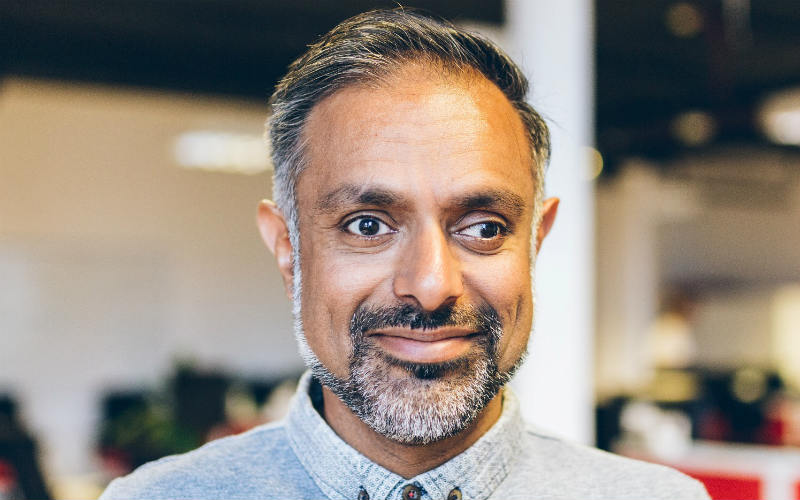
Sarat Pediredla said he’d also observed a greater level of interest being shown by London PE houses in Northern companies but he felt this was because that many more Northern companies are now being categorised as ‘fast growth’, a characteristic which was previously largely reserved for companies in London/the South East.
Mike Sprot added that higher costs in London, particularly staff along with a much higher level of staff turnover in London companies, were proving to be a serious handicap for several ambitious SMES that he knew and they were seriously looking to develop operations outside the South East and these operations were including head office functions.
Guy Pearce observed that KPMG’s London TMT M&A teams were spending much more time liaising with their peers outside London as the number of companies based outside the South East now appearing on their radar was quite distinct from the scenario of just a few years ago when it was primarily just companies in London.
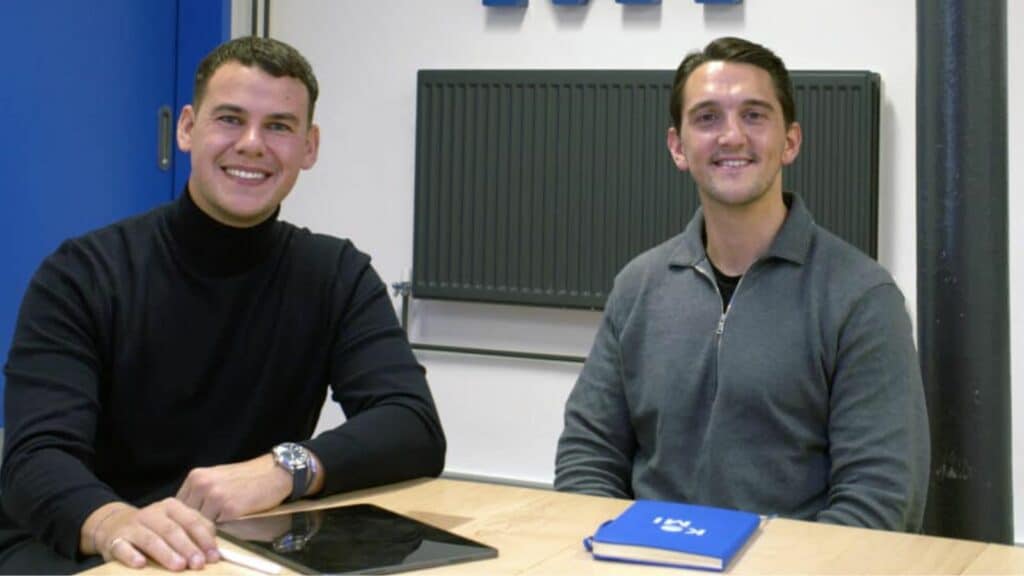
Sam Lenehan said that for KOMI, the key issue is talent: We need to access outstanding analytics, data and creativity to ensure we deliver the best possible content and for us, the sheer – and growing – number of companies generating high quality content in large volumes, from the LADBible group to The Hut Group and several others who themselves require hundreds of skilled individuals at a cost which is more competitive than that available in the capital. Getting hold of such staff in London is a real issue I can tell you. And the ever larger number of students opting to stay in the North is also expanding the talent pool in ways none of us anticipated.
Sarat Pediredla agreed it’s also not just graduate retention: We’re seeing a meaningful increase in the number of people seeking to revert back to the North/North East and the bigger we become, the more attractive we become as an employer working on national/global brands and for those seeking a better quality of life. We’re seeing lots of interest from Geordies wanting to come home and also in the numbers keen to explore opportunities elsewhere in the North and Manchester also seems to be increasingly tempting as a location for talented employees. We now are investing in building teams in Manchester as well as at our HQ in Newcastle.

Garry Partington said that Apadmi placed great store in its graduate programme with over 900 applications last year and they had noticed a clear uptick in the number of graduates seeking roles in Manchester or Leeds.
Mike Sprot said they too had noted a big increase in interest in Manchester positions and staff but this had as much to do with the legacy of big global agency groups such as Interpublic, WPP and Dentsu which between them had employed well over a thousand staff, many of whom were now looking to move on to new opportunities as the big groups cut costs and ‘realigned’ their business operations but typically these folk wanted to stay in Manchester or Leeds if possible.
Amul Batra said their take on the warmer regional sentiment came from the other side of the equation, as funding for people on their programmes was largely national but the percentage of people applying from the South had now risen to 30% – their highest ever figure.
Guy Pearce asked the group if they had any key learnings from their time spent with the PE houses.
There was a general consensus that the very process of preparation – ‘getting your ducks in a row’ – was crucial for any agency or company seriously considering PE or engaging in M&A activities. Ensuring your sales pipeline and historic sales, data analytics, contracts are all clean and transparent and easily understood is crucial.
Amul observed that their experience of talking to PE houses and needing to provide the above information proved really helpful in terms of Northcoders reappraising its own business operations and subsequently improving some aspects of its commercial performance: Getting started in good time is essential. We worked with an advisor for around 18 months before we started the PE process and even though we ultimately chose not to go down that route, the time spent preparing was time very well spent.
Brian Welsh: We brought on Foresight at the outset once we’d decided we wanted to enhance our growth. The conversations were good and investment followed and we’ve now worked with them on a couple of deals post Covid.
Mike Sprot felt that a key and consistently under recognised aspect of M&A is all too often not recognising the investment required in cultural differences between companies. People of course but the wholesale culture of a company can sometimes prove to be a significant issue post acquisition/merger.
Sarat Pediredla: When we acquired Netsells in York, I went to talk to people who had had varying degrees of success with their acquisitions. I spent around six months talking to people frankly and it was really valuable the insight I gleaned.
Ben Taylor asked the table what was exciting them in terms of potential M&A targets/sectors.
Sam Lenehan: We’re looking at possible US acquisitions, specifically smaller, more agile independent companies rather than larger, more mature companies, companies where we can help scale these companies more rapidly than they might be able to do on their own.
Garry Partington: We’re talking to around 150 companies at the moment but then we had anticipated this. We took on a dedicated M&A director – he found our recent Dutch acquisition – and we now look after deal origination primarily in-house.
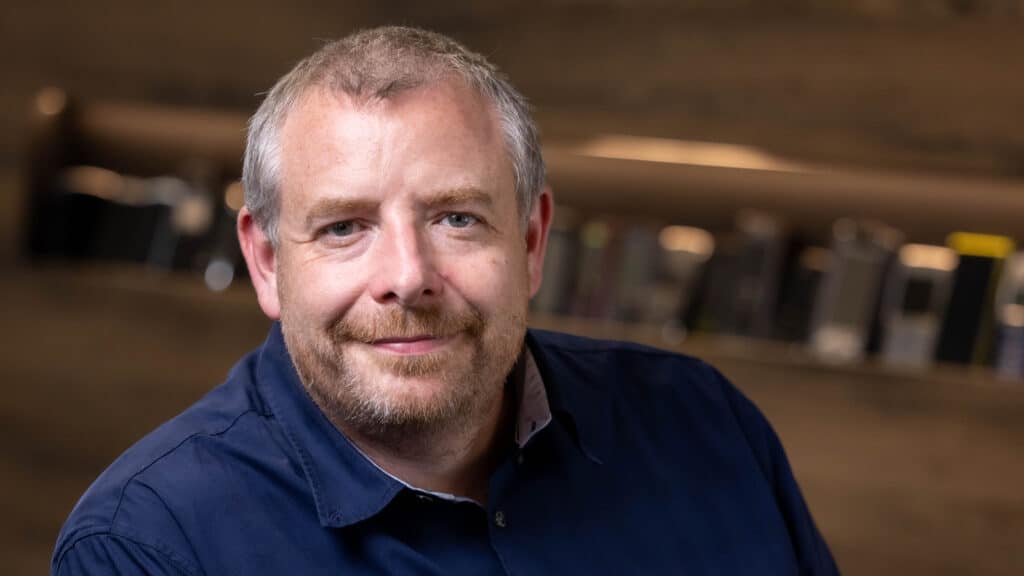
Brian Welsh: We’re looking at a range of growth options and strategic partnerships are proving to be more interesting for us than M&A but this avenue is more appropriate for our global objectives. Here in the UK, we will still typically look to M&A to achieve our aims.
And what about….AI?
Sarat Pediredla: It’s hard to genuinely quantify as it’s so frothy out there. I saw a recent stat which stated that Accenture was generating about $3bn in fees from advising companies about AI, a figure that dwarfed the actual revenues being generated by AI companies.
Brian Welsh: AI now is where Netscape was a few years ago.
Fergus Bailie: Most of our customers (we have sales in excess of £60m) want to talk about AI but many don’t know what they want so we simply try to help. Information security is a hot topic but too often it’s about the data and unfortunately in many cases that data isn’t as good as it should be. AI is still a way off I believe because the basic infrastructure isn’t there yet.
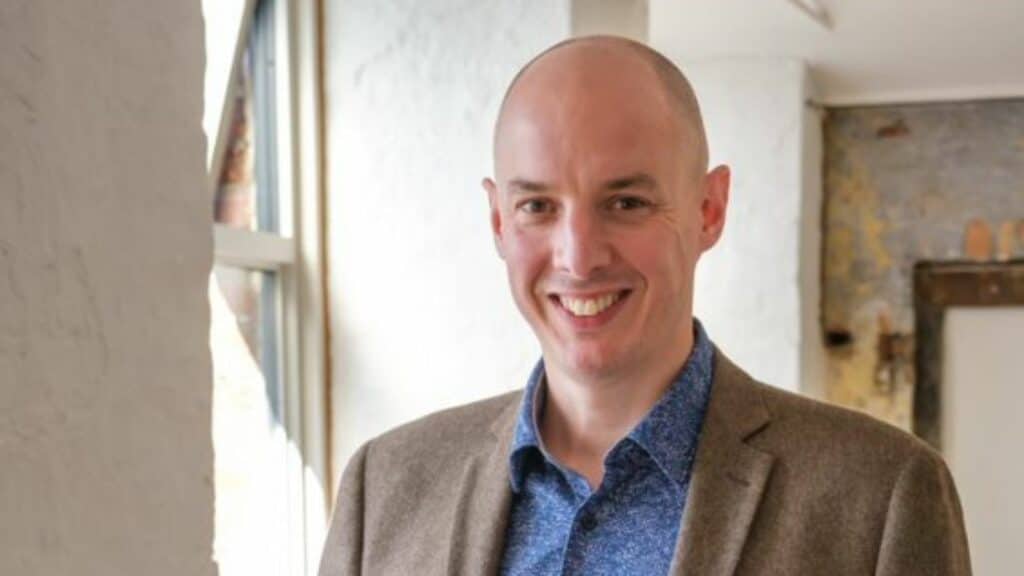
Sarat Pediredla: But it’s getting closer. I saw a quote from BP or Shell stating they have brought down their external consultants’ fees by 70% because of their adoption of AI usage. I think there’s an awful lot of bluster at play here but the change is definitely coming.
Amul Batra: I think there’s a big cycle ahead for data management. With AI I think we’ll need human input for a lot longer than many people are suggesting. As long as we have people who can solve problems, they’ll be in demand.
And….assuming Labour wins the election (the session was held on 24 June), what’s the outlook growth/M&A?
Mike Sprot: We’re still cracking on with M&A irrespective of the election outcome. And we’re also seeing more appetite from founders and owners to explore a sale which is a big change from just six months ago.
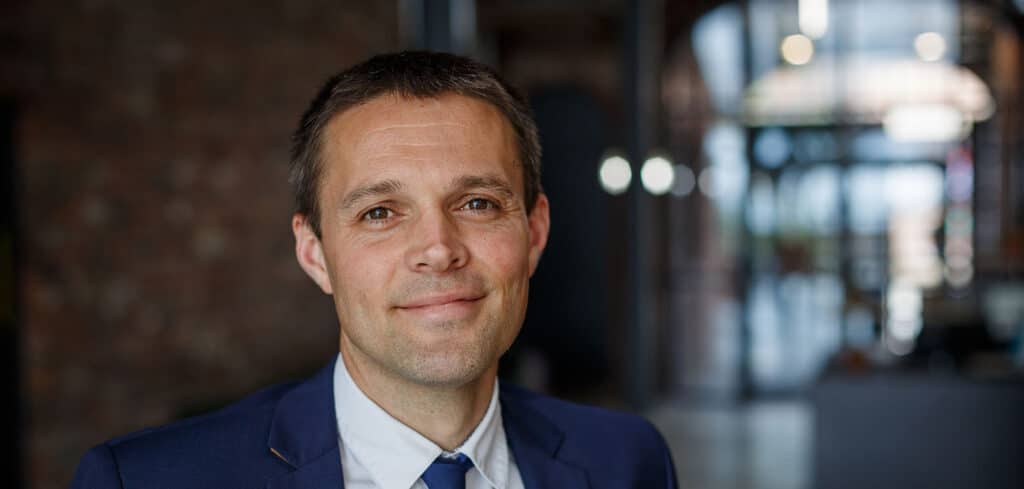
Fergus Bailie: We’ve all been through a lifetime of unusual economic shocks in what has been just a few years and company owners and directors have been more focused on internal matters, essentially survival, but now, with a potential period of stability in the prospect, broader objectives and intentions are coming to the fore as stability offers more space to consider longer term issues. We’re looking at growth both organically and through acquisition. Our focus is on what we perceive as high growth sectors – cyber, data and the cloud.
Sarat Pediredla: We’re actually not looking at acquisitions, but I’m surprised how many more companies are now coming to us than a year or so ago and they’re keen to talk with us. There does seem generally to be far more appetite and desire today for companies to resume growth as their main objective. This is undoubtedly a positive.

